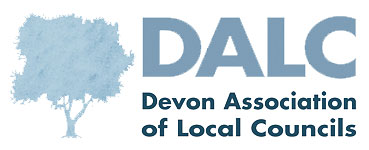Fire Safety

Guidance on fire safety legislation which came into effect on 1 October 2023, and which has an impact on the duties of the responsible person in residential and non-residential premises.
Essential changes in fire safety legislation came into effect on 1 October 2023, and affect the duties of the responsible person in residential and non-residential premises.
The new requirements (implemented by s.156 of the Building Safety Act 2022) apply to all non-domestic premises, such as where people work, visit or stay, including workplaces, and the non-domestic parts of multi-occupied residential buildings. For local councils, the relevant changes are those which will affect non-residential premises.
You are a ‘responsible person’ if you are an employer, have control of the premises or are an owner of a premises. If this applies to you, then you do now have additional duties around what needs to be done, how that work is recorded, how you co-operate with other responsible persons, and how you provide information to new responsible persons. Worknest have put together some guidance which contains a guide to everything that has been brought in and what you now need to do.
To help you meet the requirements, Worknest have also created a Fire Safety Compliance Matrix which goes through some of the requirements step by step with details of what might need to be checked, and when it will need to be checked, along with space to fill in dates of the last inspection and by whom it was carried out.
Changes in fire safety legislation

Changes in fire safety legislation came into effect on 1 October 2023, and have an impact on the duties of the responsible person in residential and non-residential premises.
Essential changes in fire safety legislation came into effect on 1 October 2023, and affect the duties of the responsible person in residential and non-residential premises.
The new requirements (implemented by s.156 of the Building Safety Act 2022) apply to all non-domestic premises, such as where people work, visit or stay, including workplaces, and the non-domestic parts of multi-occupied residential buildings. For local councils, the relevant changes are those which will affect non-residential premises.
You are a ‘responsible person’ if you are an employer, have control of the premises or are an owner of a premises. If this applies to you, then you do now have additional duties around what needs to be done, how that work is recorded, how you co-operate with other responsible persons, and how you provide information to new responsible persons. Worknest have put together some guidance which contains a guide to everything that has been brought in and what you now need to do.
To help you meet the requirements, Worknest have also created a Fire Safety Compliance Matrix which goes through some of the requirements step by step with details of what might need to be checked, and when it will need to be checked, along with space to fill in dates of the last inspection and by whom it was carried out.
Elections and Coronation guidance in our Knowledge Bank
We have updated our Elections guidance and created an Elections FAQs to help guide you through the upcoming council elections. We’ve also created a Coronation webpage to gather ideas and advice for celebrating the Coronation!
Devon has local council elections coming up in May 2023, which can be a bewildering process for anyone new to councils and even those who have gone through the election cycle before. In addition to our Preparing for Elections training, we also have updated our elections guidance in our Knowledge Bank to help you understand what might be coming up.
We’ve also created an Elections FAQs, covering just some of the questions we get asked about the elections, so you can find a quick answer to any query you may have. As always, if you can’t find an answer on our website or need any further help, then please don’t hesitate to contact our Advice Service.
Putting yourself forward for election can also be a confusing time, so we’ve created this Elections Guide for Candidates for any potential election candidates this year whether you’re a returning councillor or completely new to local councils – please feel free to share the guide in your communities as you promote the elections!
Coronation 2023
This year, the Coronation being held on Saturday 6 May, is also having an impact on local election timelines. We have created a dedicated webpage with guidance on the plans laid out by the palace, some suggestions for organising different events, and a breakdown of what various councils in Devon are doing to celebrate. We hope this will be a useful resource for your council, and will build a picture of how Devon is celebrating.
If you haven’t yet told us how your council is celebrating the coronation, then please do take a moment to complete this short survey; it’s really useful to know what councils are planning!
Tips on budget and precept setting, from Scribe Accounts
The budget represents the future spending plan for the community, read Scribe’s tips on budget and precept setting.
For Local Councils, the budget represents the future spending plan for the community and provides financial accountability. Read Scribe’s tips on setting the budget and precept below, and where to get more help.
5 top tips to help you through the process
- Schedule time – budgeting is an important task and requires dedicated time. Work back from your scheduled budget meetings to determine when you should begin prepping. Try to delegate tasks where possible, involving committees or departments and setting clear deadlines for them.
- Forecast – predict future income and expenditure to result in your likely end of year position and in turn assist with setting the precept for the following financial year. You should forecast to complete calendar months and remember to be realistic. If you are expecting to come well over or under budget, this should be what your forecast shows.
- Don’t be afraid to start again – zero-based budgeting involves starting from scratch and ignoring previous budgets. This may be necessary where the current budget is not fit for purpose (e.g. lacking in detail, inaccurate, vastly different to actuals). It can also be used for specific projects or new elements of the budget where no previous data is available.
- Make notes – keep a record of how you came to your calculations, especially for estimated budget lines and those that have changed considerably. This is a great help if questions arise or for you to refer to at a later date. You should also keep notes of changes to the budget and one-off, unexpected costs throughout the year (particularly useful for your explanation of variances at year end).
- Monitor the budget – the budget process is not just about setting the precept, it should be seen as a continuous process to assist in monitoring the current financial position of the council. Determining any areas of over/underspend throughout the year allows you to take necessary corrective action, like drawing down from reserves.
More resources from Scribe
If you want further help or details on budget setting, Scribe has some useful resources here:
- Complete Guide – Forecasting, Budgeting & Setting The Precept: A Complete Guide For Town & Parish Councils
- Budgeting Spreadsheet – Free Parish & Town Council Budgeting Spreadsheet
- Cost of Living – 15 Tips To Combat Cost Of Living Crisis At Your Town Or Parish Council
Scribe also has some free webinars on ‘Budgeting and Forecasting in Uncertain Times for Town and Parish Councils’ which can be found here on October 20th and November 9th.
Further help
Our Knowledge Bank has more information on setting your budget and precept, along with some things you may particularly want to consider this year such as the cost of holding an election in 2023, increased insurance and staffing costs, and utility costs (read guidance here from Clear Utility Solutions on the government help for utility costs)
Member councils can also access our range of finance training which includes courses on Budgeting for Clerks and Finance Staff, and Finance for Councillors (which includes budgets and precepts)
SAAA central appointment of external auditors
The SAAA (Smaller Authorities’ Audit Appointments) is responsible for appointing external auditors for opted-in smaller authorities and is now appointing for the next five year period.
The Smaller Authorities’ Audit Appointments (SAAA) is responsible for appointing external auditors to opted-in smaller authorities and managing the contracts with the appointed auditors. They are now writing to local councils regarding the appointment for the next 5 year period (2022-23 to 2026-27) and advising councils of the ability to opt-out if they wish.
Emails are being sent in batches, so you may not have received your email yet. If your contact details have changed, or you do not receive an email in the coming weeks, then please contact PKF Littlejohn on sba@pkf-l.com to make sure they have the correct contact details for your council.
All authorities require an appointed external auditor, even those that qualify as exempt since you are still required to send a Certificate of Exemption to the external auditor. During the last five years, all smaller authorities opted-in to the central procurement regime managed by the SAAA; no smaller authority decided to opt-out and follow the various complex procedures required under statute to appoint their own external auditor. If you wish to opt-in and continue as part of the SAAA sector led auditor appointment regime then no action is required; you will remain part of the central scheme.
Although the email will contain guidance on how to opt-out, NALC strongly recommends that councils opt-in (in which case, no action is necessary), and continue as part of the SAAA sector-led appointment regime.
Please bear in mind that this only relates to external auditors; councils will continue to appoint their own internal auditors and we have guidance here to help you choose an internal auditor.
Opting Out
Opting out is a significant decision which requires careful consideration and guidance has been developed to clarify what it would mean in practice. Key implications are:
- an opted-out authority regardless of size (including exempt authorities) MUST appoint an appropriate external auditor;
- the appointed auditor must be a registered auditor as defined by the Companies Act and a member of Institute of Chartered Accountants (England and Wales).
- an opted-out authority must convene an appropriate independent auditor panel which meets the requirements of the Local Audit and Accountability Act 2014 (LAAA). Detailed guidance on auditor panels is available in Schedule 4 of the LAAA Act and from CIPFA;
- an opted-out authority will need to develop its own specification for its external audit contract, will need to negotiate the price for this work on an individual basis and will need to manage the contract, including any disputes, and any independence issues that may arise;
- an opted-out authority must ensure full compliance with the relevant requirements of the Local Audit and Accountability Act and supporting Regulations;
- any opted-out authority that does not successfully appoint an appropriate external auditor in the correct manner and notify SAAA who their external auditor is by 30 November 2022 will have an external auditor appointed for it by the Secretary of State through SAAA. This will result in additional costs of £300 which will have to be met by the authority.
An authority that wishes to opt out must formally reach and record that decision in a way that meets the requirements of its own governance framework, by convening a full council meeting or an extraordinary council meeting.
The SAAA have also shared a case study in NALC’s blog as a cautionary tale of what to avoid during the audit process, and the importance of having a generic email address. There is guidance here on setting up a generic council email with the gov.uk domain.
Pay award for 2022/23 and payments in lieu
You don’t have permission to view the content
Young people helping their councils and communities
The importance of young people to your community, how to engage them and read about Horrabridge’s newest (and youngest) councillor!
Young people play an important part in our communities and may use a range of council facilities such as playparks, benches and public toilets. Although they have their own needs and desires for the community, they can sometimes be a hard group for local councils to reach but there are benefits to engaging with them. They are the future of our communities so it is critical to support their development. Councils can work to engage young people, either by getting them involved in the work of the council or by delivering services and assets designed to support them.
How can we engage young people?
Councils could try and reach out to young people by working with other organisations, such as schools and local youth groups, to help educate youngsters about local councils and encouraging them to participate. This might include going into schools or youth meetings (such as the Guides or Scouts) to give talks, putting notices or updates in school newsletters, or actively working with groups to promote local democracy. For example, councils could run art competitions in schools to design a logo for the council or to design a poster. South Tawton Parish Council carried out a competition to choose a winning design for their ‘slow down’ road signs.
Streaming or videoing important events may also help as young people could watch them at school or at home; Okehampton Town Council streams their Mayoral choosing event so that schools are able to watch it live.
Other ways to include young people in your community might be to use social media; different media will reach different groups so it may be worth considering an Instagram, or Twitter, page. Perhaps you could use community awards to recognise young people in the parish who are already working hard to benefit the community like South Brent Parish Council’s Community Champion awards
A young councillor at Horrabridge
Meet Harley Carpenter, Horrabridge’s latest parish councillor! Harley was co-opted in April, having just turned 18 years old.
She has lived in the parish for 5 years and felt it was important to join the council to encourage other youngsters to feel more involved with the community and to express any concerns they might have.
Harley also volunteers with the local youth club, youth coffee mornings and U.B.A.K.A. (Urban Bulldogs Against Kids Abuse).

Resources
NALC has a range of resources aimed at how councils can encourage young people to become councillors and make a change in their community, but also the ways that councils can support young people including funding youth groups, consulting young people and installing relevant assets such as skate parks. This includes a Young people case studies publication, which includes several councils from Devon including Bradninch, Peter Tavy, Chulmleigh and Buckland Brewer.
Training
Our partners, Breakthrough Communications, run training on how to effectively engage with young people in your community (please note the course costs £30 +VAT, invoiced by DALC), to help you explore the issues that matter to young people, how to effectively reach and engage with them both online and offline, and how to build partnerships with them to improve your community and the work of your council. More information on our training with Breakthrough Communications is available here, with a range of other courses to help you engage your community.
NALC National Network
If you are a young councillor (under 40) then you may be interested in joining NALC’s National Network for Young Councillors which meets regularly to help connect councillors, share good practice and provide mutual support.
Code of Conduct

Councils are required by law to have a Code of Conduct which deals with the behaviour that is expected of councillors when they are acting in that capacity.
What is the Code of Conduct?
The Localism Act 2011 made it a legal requirement for all local councils to have a Code of Conduct. The code applies to councillors any time they are acting as a councillor, and is there to help by modelling the behaviour expected of a councillor and setting out the type of conduct that might lead to action being taken against them. The aim of the Code is to build public confidence in local government.
The Code incorporates the Nolan Principles, seven principles of public life which apply to all holders of public office and those who deliver public services.
| What are the principles? | What do they mean? |
| Selflessness | Should act solely in terms of the public interest |
| Integrity | Should not act in order to gain financial or other benefits for themselves, family or friends or place themselves under any obligation that might seek influence. Must declare and resolve any interests and relationships. |
| Objectivity | Must act and take decisions impartially, fairly and on merit without discrimination or bias |
| Accountability | Accountable to the public for their decisions and actions, subject to scrutiny to ensure this. |
| Openness | Should act and take decisions in an open and transparent manner |
| Honesty | Holders of public office should be truthful |
| Leadership | Should exhibit these principles in their own behaviour and treat others with respect. Should actively promote and support the principles, challenging poor behaviour when seen. |
For more information about the principles, the Committee on Standards in Public Life (CSPL) have made a series of short videos, available on YouTube.
Which Code of Conduct should we use?
In January 2019, the Committee on Standards in Public Life published a report on Local Government Ethical Standards that made a number of recommendations, one of which was that there should be one single Code of Conduct across the sector. The Local Government Associated worked with key partners in the sector, and carried out extensive consultations, to develop and publish a Model Councillor Code of Conduct.
NALC have now approved the LGA Model Code as their suggested document for councils; however, we do recommend that councils contact their district council to check which code they are using so they can use the same code.
The LGA has also published excellent guidance on using the code, with thorough information about when it applies and what to consider.
What happens if we think there’s a breach?
Possible breaches of the code by a councillor can only be investigated by the Monitoring Officer at the relevant district council, and anyone can make a report to them (including members of the public, councillors and staff). If the council is contacted with a complaint against an individual councillor, they can direct the complainant to the Monitoring Officer. The council can try to resolve any internal complaints about a councillor informally, but will otherwise need to direct their concerns to the Monitoring Officer.
If a complaint relates directly to the treatment of council staff then it may be preferable for the council or councillors to make the report in order to demonstrate the council’s duty of care towards its staff.
Related Links
Guidance on decision-making and resolutions
NALC advice notes – Members conduct and the registration and disclosure of their interests (England)
Devon authorities pledge support to Ukrainians fleeing conflict

Local authority leaders across Devon have spoken out in concern for the people of Ukraine and their families, following the Russian invasion.
Team Devon authorities, including Devon County and District Councils and the Devon Association of Local Councils, have pledged to work together to support Ukrainian refugees seeking sanctuary in the UK, and have each condemned Russia’s actions.
They have agreed to give particular support to families in Devon whose relatives in Ukraine are fleeing the conflict.
Individually, councils have also taken steps to cut Russian links, such as through contracts for energy provision. And any few remaining investments within the Devon Pension Fund, linked to Russian assets, are being sold off quickly.
Devon councils have long worked together, alongside health and voluntary sector partners and local communities, to provide safe sanctuary and resettlement for refugees, most recently Syrian families and those fleeing conflict in Afghanistan.
The Leader of Devon County Council and Chair of the Team Devon partnership of authorities, Cllr John Hart said: “We are deeply concerned for those desperate people escaping conflict in Ukraine in huge numbers. We agreed that we have a duty to do what we can in Devon to support families fleeing Ukraine to join their family members here in the UK.”
The government has outlined support for up to 200,000 Ukrainian refugees under ‘temporary visa concessions’. And further visas are being granted to those currently within the UK, including specific groups of workers, students and other visitors.
Already Devon District Councils are receiving offers of accommodation from Devon residents, for Ukrainian families.
Cllr Bob Deed, Chair of the Devon Districts Forum and Leader of Mid Devon District Council, said: “Our communities across Devon have already shown a willingness to help the people of Ukraine and I am glad that our councils can work together, in the coming days and months, to offer assistance to people whose lives have been changed immeasurably by this war. While details of local support is being drawn up I would encourage anyone who wishes to help to donate to the UK’s emergency fund.”
And today, the UK Disasters Emergency Committee has launched its Ukraine Humanitarian Appeal, drawing together funding and action across major charities and Non-Governmental Organisations to support people displaced through the conflict. The government has pledged to match up to £20 million of any donations from the public.
The fastest way to donate to a DEC appeal is by donating online. Visit https://www.dec.org.uk/appeal/ukraine-humanitarian-appeal
Alternatively you can call 01204 770822, or use other ways to donate. https://dechelp.zendesk.com/hc/en-us/categories/200731191-Donations-Gift-Aid
Or visit your local District Council page for details of support in your area:
| East Devon | Mid Devon |
| North Devon | South Hams |
| Torbay | Teignbridge |
| Torridge | West Devon |
How can councils help the people of Ukraine?
Many parish and town councils are keen to make contributions to the crisis in Ukraine. Please be aware that section 137 (3) of the Local Government Act 1972 prevents councils making donations to charities operating outside of the UK. Councils with the General Power of Competence have the power to make a donation to a charity operating overseas as it is something that an individual can do.
However, if a council received a request from a local charity providing support to refugees from Ukraine locally, then they may be able to use section 137 to provide support to that charity.
Other ways to assist may be:
- Work with another local organisation who are able to make donations so the funds go from their account
- Promote the Disaster Emergency Committee fund in the community
- You could even set up a JustGiving so money from the community goes directly to the DEC
Please contact us if you need any further advice.
What about flying the Ukrainian flag?
As with most flag flying, please make sure you have checked the government’s guidance on flying flags or ask your planning authority.
Devon County Council support including the Ukraine Family Visa and Homes for Ukraine schemes
Devon County Council is working across a range of partners to develop suitable local responses particularly with regards to the UK Government Ukraine Family Visa scheme and the Homes for Ukraine scheme announced yesterday. The specific role for local government in support for each is still emerging and they will provide a wider briefing on this in due course.
In the meantime for those offering accommodation locally, you may want to direct them to Homes for Ukraine where they can register interest direct with Government. The link also contains some Frequently Asked Questions for would be accommodation providers.
Devon County Council is following national and international guidance that those wishing to offer donations on the ground are best served in making financial contributions, particularly to the Disasters Emergency Committee. They may review local responses should numbers of Ukrainian refugees with particular needs start to settle locally.
The Council’s website is being updated with the latest information and provides wider background and links.
More information
NALC has issued guidance in a briefing on the situation in Ukraine, available for download here GB1-22 UKRAINE
Councils concerned about cyber security could refer to The Good Councillor’s Guide to Cyber Security (available to download on our Publications page). You could also contact the Devon and Cornwall Police Cyber Protect Unit who can offer a free Cyber Crime Awareness Session in your community or to your council to help you prepare.
Covid-19 | New restrictions, remote meetings and working from home
You don’t have permission to view the content
